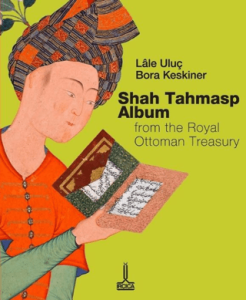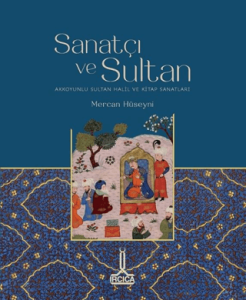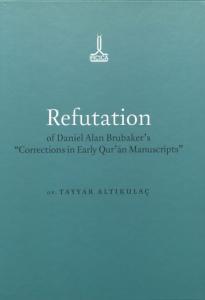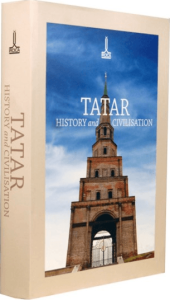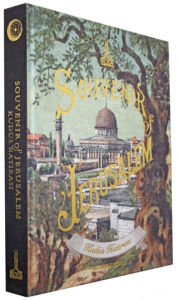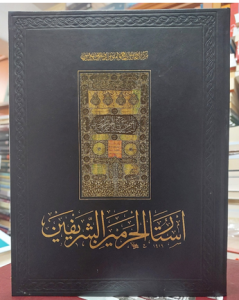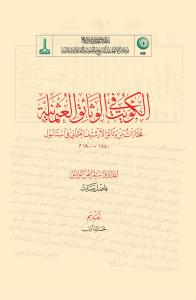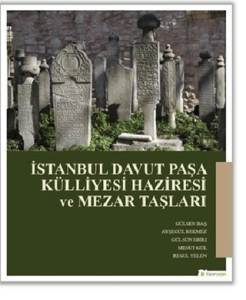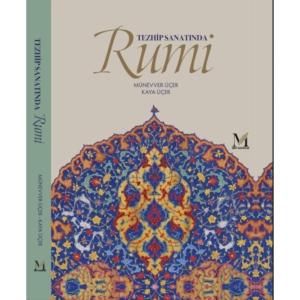
By Mustafa b. Abdullah Hacı Halife Katib Çelebi,
Edited and Introduction by Ekmeleddin İhsanoğlu,
in collaboration with Mahmoud al-Arnaut, Saleh Sadawi Saleh,
Indices by Selahaddin Uygur,
ISBN Arabic-English
978-92-9063-210-8 (vol.1),
978-92-9063-211-5 (vol.2),
978-92-9063-212-2 (vol.3),
978-92-9063-213-9 (vol.4),
978-92-9063-214-6 (vol.5),
978-92-9063-215-3 (vol.6),
978-92-9063-216-0 (set)
The present book is a critical edition of the major biographical work Sullam al-Wusul by Katib Chalabi (d. 1657), one of the most important Ottoman scholars of the 17th century. His most well-known works are Kashf al-Zunun (bibliographical), Sullam al-Wusul (biographical), Fezleke (general Islamic history) and Cihannuma (geographical). The first cited, an outstanding bibliography in history of science, and the last cited, were published many times. Sullam al-Wusul was not published until today (Fezleke either).
The book is arranged in two editions of 6 volumes each. The main body is in Arabic in both editions, whereby the comprehensive Introduction by Prof. Ekmeleddin İhsanoğlu and the Preface by Dr. Halit Eren are provided in also English in one of the editions and also in Turkish in the other edition. The sixth volume altogether is the Index.
Work towards this publication was conducted at the initiative and under the editorship and coordination of Prof. İhsanoğlu on the occasion of the 2009 Katib Chalabi Year proclaimed by UNESCO. It was conceived in the context of IRCICA’s objective to publish major sources of culture and learning that are part of the Muslim world’s heritage and render them available to researchers.
In the comprehensive Introduction, İhsanoğlu explores some features of Islamic literature in the area of biography as observed over the centuries. Historians of the Muslim world wrote hundreds of books in every branch of biography: ”While some of these contained the biographies of scholars belonging to specific branches of science or to certain sects, others dealt with the life stories of statesmen, scholars and religious authorities who lived in specific places or specific periods of time. These kinds of biographies were usually arranged by category and by date. ... Another type of biographies contained information on important statesmen, scholars, religious figures, authors, artists, etc. having lived in history. … This type of general biography was usually arranged alphabetically. … Katib Chalabi is the leading, or one of the leading personality among those who produced general biographies.”
This biography records the lives and works of important statesmen and scholars in Islamic history and also of renowned personalities from pre-Islamic times who held a place in learning and literature. In the second part of the book Katib Chalabi gives information about the personalities’ names derived from their places of origin or their genealogy. In the prologue, he explains the method he followed in the book, comments on the science of history, and adds information on names derived from places or genealogy. In this regard Sullam al-Wusul is also a book on genealogy.
The Index section has been added to the edition. It is composed of four parts: personal names, place names, publication titles, names of institutions.
IRCICA is pleased to render this major work on the history of science and culture available to researchers and interested readers.
By Mustafa b. Abdullah Hacı Halife Katib Çelebi,
Edited and Introduction by Ekmeleddin İhsanoğlu,
in collaboration with Mahmoud al-Arnaut, Saleh Sadawi Saleh,
Indices by Selahaddin Uygur,
ISBN Arabic-English
978-92-9063-210-8 (vol.1),
978-92-9063-211-5 (vol.2),
978-92-9063-212-2 (vol.3),
978-92-9063-213-9 (vol.4),
978-92-9063-214-6 (vol.5),
978-92-9063-215-3 (vol.6),
978-92-9063-216-0 (set)
The present book is a critical edition of the major biographical work Sullam al-Wusul by Katib Chalabi (d. 1657), one of the most important Ottoman scholars of the 17th century. His most well-known works are Kashf al-Zunun (bibliographical), Sullam al-Wusul (biographical), Fezleke (general Islamic history) and Cihannuma (geographical). The first cited, an outstanding bibliography in history of science, and the last cited, were published many times. Sullam al-Wusul was not published until today (Fezleke either).
The book is arranged in two editions of 6 volumes each. The main body is in Arabic in both editions, whereby the comprehensive Introduction by Prof. Ekmeleddin İhsanoğlu and the Preface by Dr. Halit Eren are provided in also English in one of the editions and also in Turkish in the other edition. The sixth volume altogether is the Index.
Work towards this publication was conducted at the initiative and under the editorship and coordination of Prof. İhsanoğlu on the occasion of the 2009 Katib Chalabi Year proclaimed by UNESCO. It was conceived in the context of IRCICA’s objective to publish major sources of culture and learning that are part of the Muslim world’s heritage and render them available to researchers.
In the comprehensive Introduction, İhsanoğlu explores some features of Islamic literature in the area of biography as observed over the centuries. Historians of the Muslim world wrote hundreds of books in every branch of biography: ”While some of these contained the biographies of scholars belonging to specific branches of science or to certain sects, others dealt with the life stories of statesmen, scholars and religious authorities who lived in specific places or specific periods of time. These kinds of biographies were usually arranged by category and by date. ... Another type of biographies contained information on important statesmen, scholars, religious figures, authors, artists, etc. having lived in history. … This type of general biography was usually arranged alphabetically. … Katib Chalabi is the leading, or one of the leading personality among those who produced general biographies.”
This biography records the lives and works of important statesmen and scholars in Islamic history and also of renowned personalities from pre-Islamic times who held a place in learning and literature. In the second part of the book Katib Chalabi gives information about the personalities’ names derived from their places of origin or their genealogy. In the prologue, he explains the method he followed in the book, comments on the science of history, and adds information on names derived from places or genealogy. In this regard Sullam al-Wusul is also a book on genealogy.
The Index section has been added to the edition. It is composed of four parts: personal names, place names, publication titles, names of institutions.
IRCICA is pleased to render this major work on the history of science and culture available to researchers and interested readers.











